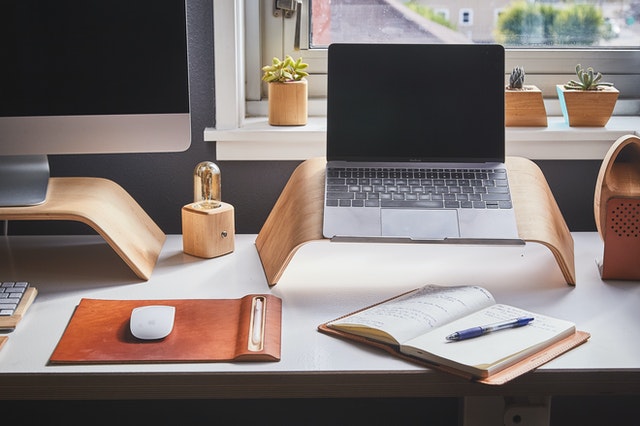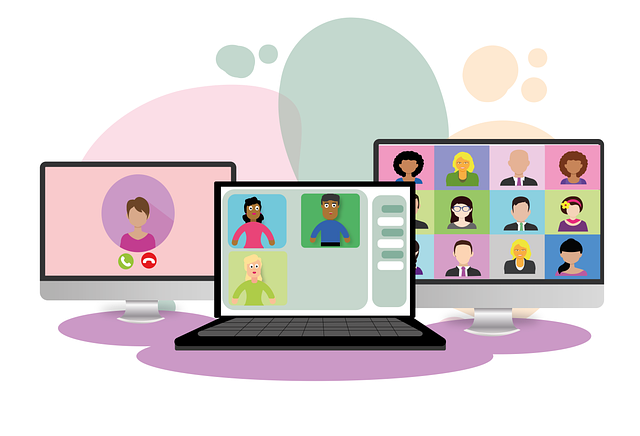Working from home became the norm in 2020. As the pandemic continues to cause widespread disruption, it seems as though many of us will be spending more time at home for the foreseeable future. With this in mind, it’s crucial to understand how to look after your health and wellbeing. In this guide, we’ll explore steps you can take to put your health first while working from home.
Exercise
Exercise is one of the most effective natural tonics for better physical and mental wellbeing. Working from home can make it harder for employees to reach activity targets, as there is no walk to the office to complete and restrictions are in place, which makes it difficult to access sports facilities and gyms. If you’re spending a lot of time at your desk, it is possible to increase activity levels. Take regular breaks to stretch your legs, set aside an hour, or even half an hour a day to move your body, and try and include activities that enable you to increase your heart rate and burn calories as part of your daily routine. Exercise is important for your body, but it’s also crucial for your mental health. Being active can help to reduce stress and tension and it also releases endorphins and chemicals, such as dopamine and serotonin, which make you feel good. Even if you’re new to exercise, or it’s been a long time since you worked out, you can benefit from gentle activities. Start with walking or doing a virtual beginner’s class and try new activities as you build up your fitness and stamina. There are several ways to work out at home, including online sessions and classes, using home gym equipment, or following training programs that don’t require any equipment.

Getting fresh air
Sitting at a desk for nine hours a day can take its toll on your energy levels, your mental health, and your motivation. Taking breaks is important to enjoy a change of scenery, rest your eyes, stretch your muscles and give your brain a chance to recharge and recover. Try and ensure you get fresh air as frequently as possible. Being out in the open air can uplift and energize you and it can also lower stress levels and help you feel more enthusiastic and focused. Even if you only have time for a 10-minute walk after lunch, it’s worth getting out and enjoying a stroll.
Posture
The Covid-19 crisis triggered a sudden exodus from offices, and many people found themselves taking calls at the kitchen table or using the sofa as a makeshift study. Poor posture is one of the most significant causes of back pain, the most common ailment among US employees. If you are working from home, try to ensure that you maintain good posture. The effects of long term sitting can be damaging, and it’s incredibly important to make sure that you are comfortable and that your spine is supported. Choose a chair that has lumbar support to prevent pain in the lower back and position your laptop or desktop computer so that you don’t have to stretch to type. Keep your shoulders back and your spine straight and try to avoid sitting for prolonged periods. Alternate between standing and sitting and go for a short walk every hour to loosen up your muscles. Avoid slouching and use cushions to provide additional support if you don’t have an ergonomic office chair at home.

Achieving a healthy work-life balance
In the past, it was often assumed that working from home was easier than going into the office every day, with shorter hours and the option to sit around in pajamas all day. In reality, as many people have now realized, being at home can actually be more challenging. Many people find it difficult to switch off and stick to set working hours when there are no official clocking in and signing out times, and this means that they spend more time at their desk. It can also be challenging to separate work and play when you’re spending all your time at home. To find a healthy work-life balance, try and adopt a routine, stick to core hours and separate work areas from social spaces where you hang out with housemates and spend time with family or rest and relax. Leave your work phone in the office and resist the temptation to check emails late at night.
Eating well
Studies suggest that people are snacking more and unhealthy eating habits have crept in for many families during lockdowns and periods of restriction. Your diet is vital for good health and wellbeing, and it’s critical to try and eat well. Plan weekly menus in advance, avoid buying unhealthy snacks and treats, try to cook from scratch on a regular basis, and aim to eat plenty of whole grains, healthy fats, and fruit and vegetables. If you struggle for ideas and inspiration, or you’re not an experienced home cook, there are hundreds of quick, simple, and nutritious recipes available online.

Socializing
Many of us are used to seeing colleagues or customers and engaging in conversations each and every day. Working from home can get lonely, but there are ways to reach out, connect with others and socialize safely. Virtual calls and video chats are a great idea. You can hang out with friends over a drink on a Friday night, take part in quizzes or games with colleagues or catch up with the family over a video call. Check-in with friends and neighbors and don’t hesitate to send a message or make a call if you’re feeling down or you’re craving human interaction that doesn’t involve attending virtual meetings or conferences.
 Working from home has its advantages, but it can be difficult to put your health first. If you’re spending most of your time at home, it’s essential to look after yourself. Try to be as active as possible, eat well, get into a routine that enables you to find the right work-life balance, socialize with others virtually and get out into the fresh air whenever you can.
Working from home has its advantages, but it can be difficult to put your health first. If you’re spending most of your time at home, it’s essential to look after yourself. Try to be as active as possible, eat well, get into a routine that enables you to find the right work-life balance, socialize with others virtually and get out into the fresh air whenever you can.

